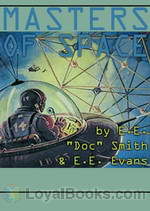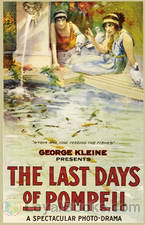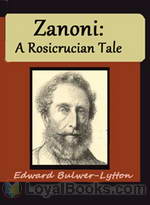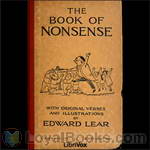|
Books Should Be Free Loyal Books Free Public Domain Audiobooks & eBook Downloads |
|
|
Books Should Be Free Loyal Books Free Public Domain Audiobooks & eBook Downloads |
|
Fiction |
|---|
|
Book type:
Sort by:
View by:
|
By: Edna Ferber (1885-1968) | |
|---|---|
 Roast Beef, Medium
Roast Beef, Medium
This book follows the adventures of Emma McChesney, a smart and savvy divorced mother who travels the Midwest as a sales representative for a large skirt and petticoat manufacturer. Her many adventures with people, (including predatory salesmen and hotel clerks), are funny and poignant. She is hardworking and able to outsell the slickest of the men salesmen. She has learned to focus on her work and her seventeen-year-old son, Jock. Experience has taught her that it is usually best to stick to roast beef, medium and not get stomach ache with fancy sauces and exotic dishes... | |
 One Basket
One Basket
This sparkling collection of 7 short stories by Ferber including some that are considered her all time best like The Woman Who Tried To be Good and The Maternal Feminine. Writing for and about women, Edna Ferber touches the very heart and soul of what it means to be human; to make good choices and bad; to be weak and strong. This was a very popular book when published in 1913 | |
 Personality Plus
Personality Plus
Personality Plus is an early novel by American author Edna Ferber. Originally published in 1914, Personality Plus is the second of three volumes chronicling the travels and events in the life of Emma McChesney. Ferber achieved her first successes with a series of stories centering around this character, a stylish and intelligent divorced mother who rises rapidly in business. ( | |
 Emma McChesney and Company
Emma McChesney and Company
This is the final volume in the trilogy following the smart, stylish, divorced and independent businesswoman Emma McChesney in her career from stenographer, then drummer (traveling salesman) to owner of her own company. (The first was Roast Beef, Medium and the second Personality Plus). Edna Ferber first gained success with these stories and later went on to write Show Boat, Giant and other well known books. First published in 1915, Emma's son, Jock, has moved to Chicago with his new wife. Emma decides to sell in South America and proves she has not lost her magic touch... | |
By: Edna Henry Lee Turpin (1867-1952) | |
|---|---|
 Honey-Sweet
Honey-Sweet
| |
By: Edna Lyall (1857-1903) | |
|---|---|
 The Autobiography of a Slander
The Autobiography of a Slander
The Autobiography of a Slander exposes the consequences of reckless words or, even worse, intentionally disparaging words. In this moral tale, told from the point of view of "the slander", Edna Lyall (pseudonym used by Ada Ellen Bayley) reveals her ideals and goals in life and relationships. | |
 Derrick Vaughan, Novelist
Derrick Vaughan, Novelist
| |
 We Two, a novel
We Two, a novel
| |
By: Edouard Laboulaye (1811-1883) | |
|---|---|
 Laboulaye's Fairy Book
Laboulaye's Fairy Book
| |
By: Edward Bellamy (1850-1898) | |
|---|---|
 Looking Backward: 2000-1887
Looking Backward: 2000-1887
Looking Backward: 2000-1887 is a utopian novel by Edward Bellamy, first published in 1888. It was the third largest bestseller of its time, after Uncle Tom’s Cabin and Ben-Hur: A Tale of the Christ.The book tells the story of Julian West, a young American who, towards the end of the 19th century, falls into a deep, hypnosis-induced sleep and wakes up more than a century later. He finds himself in the same location (Boston, Massachusetts) but in a totally changed world: It is the year 2000 and, while he was sleeping, the U... | |
 Looking Backward 2000-1887
Looking Backward 2000-1887
| |
 The Blindman's World 1898
The Blindman's World 1898
| |
 The Duke of Stockbridge
The Duke of Stockbridge
| |
 An Echo Of Antietam 1898
An Echo Of Antietam 1898
| |
 A Love Story Reversed 1898
A Love Story Reversed 1898
| |
 With The Eyes Shut 1898
With The Eyes Shut 1898
| |
 At Pinney's Ranch 1898
At Pinney's Ranch 1898
| |
 A Summer Evening's Dream 1898
A Summer Evening's Dream 1898
| |
 The Cold Snap 1898
The Cold Snap 1898
| |
 Hooking Watermelons 1898
Hooking Watermelons 1898
| |
 Two Days' Solitary Imprisonment 1898
Two Days' Solitary Imprisonment 1898
| |
 Potts's Painless Cure 1898
Potts's Painless Cure 1898
| |
 A Positive Romance 1898
A Positive Romance 1898
| |
 The Old Folks' Party 1898
The Old Folks' Party 1898
| |
 Deserted 1898
Deserted 1898
| |
 Lost 1898
Lost 1898
| |
 To Whom This May Come 1898
To Whom This May Come 1898
| |
By: Edward C. Taylor | |
|---|---|
 Ted Strong's Motor Car Or, Fast and Furious
Ted Strong's Motor Car Or, Fast and Furious
| |
 Ted Strong in Montana Or, With Lariat and Spur
Ted Strong in Montana Or, With Lariat and Spur
| |
By: Edward Dyson (1865-1931) | |
|---|---|
 In the Roaring Fifties
In the Roaring Fifties
| |
 The Missing Link
The Missing Link
| |
 The Gold-Stealers A Story of Waddy
The Gold-Stealers A Story of Waddy
| |
By: Edward Eggleston (1837-1902) | |
|---|---|
 Hoosier Schoolmaster
Hoosier Schoolmaster
"Want to be a school-master, do you? You? Well, what would you do in Flat Crick deestrick, I'd like to know? Why, the boys have driv off the last two, and licked the one afore them like blazes. You might teach a summer school, when nothin' but children come. But I 'low it takes a right smart man to be school-master in Flat Crick in the winter. They'd pitch you out of doors, sonny, neck and heels, afore Christmas." | |
 Queer Stories for Boys and Girls
Queer Stories for Boys and Girls
| |
 The Faith Doctor A Story of New York
The Faith Doctor A Story of New York
| |
 The Hoosier School-boy
The Hoosier School-boy
| |
By: Edward Eldridge | |
|---|---|
 A California Girl
A California Girl
| |
By: Edward Elmer Smith (1890-1965) | |
|---|---|
 Masters of Space
Masters of Space
The Masters had ruled all space with an unconquerable iron fist. But the Masters were gone. And this new, young race who came now to take their place–could they hope to defeat the ancient Enemy of All? | |
By: Edward Everett Hale (1822-1909) | |
|---|---|
 The Man Without a Country and Other Tales
The Man Without a Country and Other Tales
| |
 Christmas Eve and Christmas Day
Christmas Eve and Christmas Day
This is a collection of ten Christmas Stories, some of which have been published before. I have added a little essay, written on the occasion of the first Christmas celebrated by the King of Italy in Rome. | |
 The Brick Moon and Other Stories
The Brick Moon and Other Stories
| |
 Man Without A Country And Other Tales
Man Without A Country And Other Tales
Edward Everett Hale (1822 – 1909) was an American author, historian and Unitarian clergyman. Hale first came to notice as a writer in 1859, when he contributed the short story "My Double and How He Undid Me" to the Atlantic Monthly. He soon published other stories in the same periodical. His best known work was "The Man Without a Country", published in the Atlantic in 1863 and intended to strengthen support in the Civil War for the Union cause in the North. Though the story is set in the early 19th century, it is an allegory about the upheaval of the American Civil War... | |
 If, Yes and Perhaps Four Possibilities and Six Exaggerations with Some Bits of Fact
If, Yes and Perhaps Four Possibilities and Six Exaggerations with Some Bits of Fact
| |
By: Edward George Bulwer-Lytton (1803-1873) | |
|---|---|
 Last Days of Pompeii
Last Days of Pompeii
The Last Days of Pompeii, a novel by Edward George Bulwer-Lytton tells the love story of the Greeks Glaucus and Ione who were living in Pompeii when Mt. Vesuvius erupted and destroyed the city. But aside from telling their romance, the book is also full of insights about the decadent lifestyle of the Romans during the later part of their empire’s history. The different characters in the story represent the different civilizations which they come from. Glaucus, the main protagonist in the novel was portrayed as a handsome Greek nobleman... | |
 The Coming Race
The Coming Race
Edward George Earle Lytton Bulwer-Lytton, 1st Baron Lytton (1803-1873) was an English novelist, poet, playright, and politician. Lord Lytton was a florid, popular writer of his day, who coined such phrases as “the great unwashed”, “pursuit of the almighty dollar”, “the pen is mightier than the sword”, and the infamous incipit “It was a dark and stormy night.” Despite his popularity in his heyday, today his name is known as a byword for bad writing. San Jose State University holds... | |
 Zanoni
Zanoni
Zanoni, a timeless Rosicrucian brother, cannot fall in love without losing his power of immortality; but he does fall in love with Viola Pisani, a promising young opera singer from Naples, the daughter of Pisani, a misunderstood Italian violinist. An English gentleman named Glyndon loves Viola as well, but is indecisive about proposing marriage, and then renounces his love in order to pursue occult study. The story develops in the days of the French Revolution in 1789. Zanoni has lived since the Chaldean civilization... | |
 Rienzi, Last of the Roman Tribunes
Rienzi, Last of the Roman Tribunes
| |
 Leila or, the Siege of Granada
Leila or, the Siege of Granada
| |
 Godolphin
Godolphin
| |
By: Edward H. Hurlbut | |
|---|---|
 Lanagan Amateur Detective
Lanagan Amateur Detective
This is a 1913 collection of ten short detective stories by a not well known writer. Jack Lanagan is a police reporter for a daily newspaper in San Francisco, who has the confidence of the chief of police and access to all sorts of levels of city life. - Summary by David Wales | |
By: Edward Howard (-1841) | |
|---|---|
 Rattlin the Reefer
Rattlin the Reefer
| |
By: Edward Jenkins (1838-1910) | |
|---|---|
 Ginx's Baby: his birth and other misfortunes; a satire
Ginx's Baby: his birth and other misfortunes; a satire
| |
By: Edward Lear (1812-1888) | |
|---|---|
 A Book of Nonsense
A Book of Nonsense
In 1846 Lear published A Book of Nonsense, a volume of limericks that went through three editions and helped popularize the form. This book contains 112 of these funny, imaginative verses that have been well loved by many generations of children (and adults). ( | |
 Nonsense Songs, Stories, Botany and Alphabets
Nonsense Songs, Stories, Botany and Alphabets
A selection of nonsense poems, songs (not sung!), stories, and miscellaneous strangeness. The work includes the "Owl and the Pussycat" and a recipe for Amblongus Pie, which begins "Take 4 pounds (say 4½ pounds) of fresh ablongusses and put them in a small pipkin."Edward Lear was an English writer, poet, cat-lover, and illustrator (his watercolours are beautiful). This recording celebrates the 200th anniversary of Lear's birth. | |
 Nonsense Drolleries The Owl & The Pussy-Cat—The Duck & The Kangaroo.
Nonsense Drolleries The Owl & The Pussy-Cat—The Duck & The Kangaroo.
| |
 More Nonsense
More Nonsense
| |